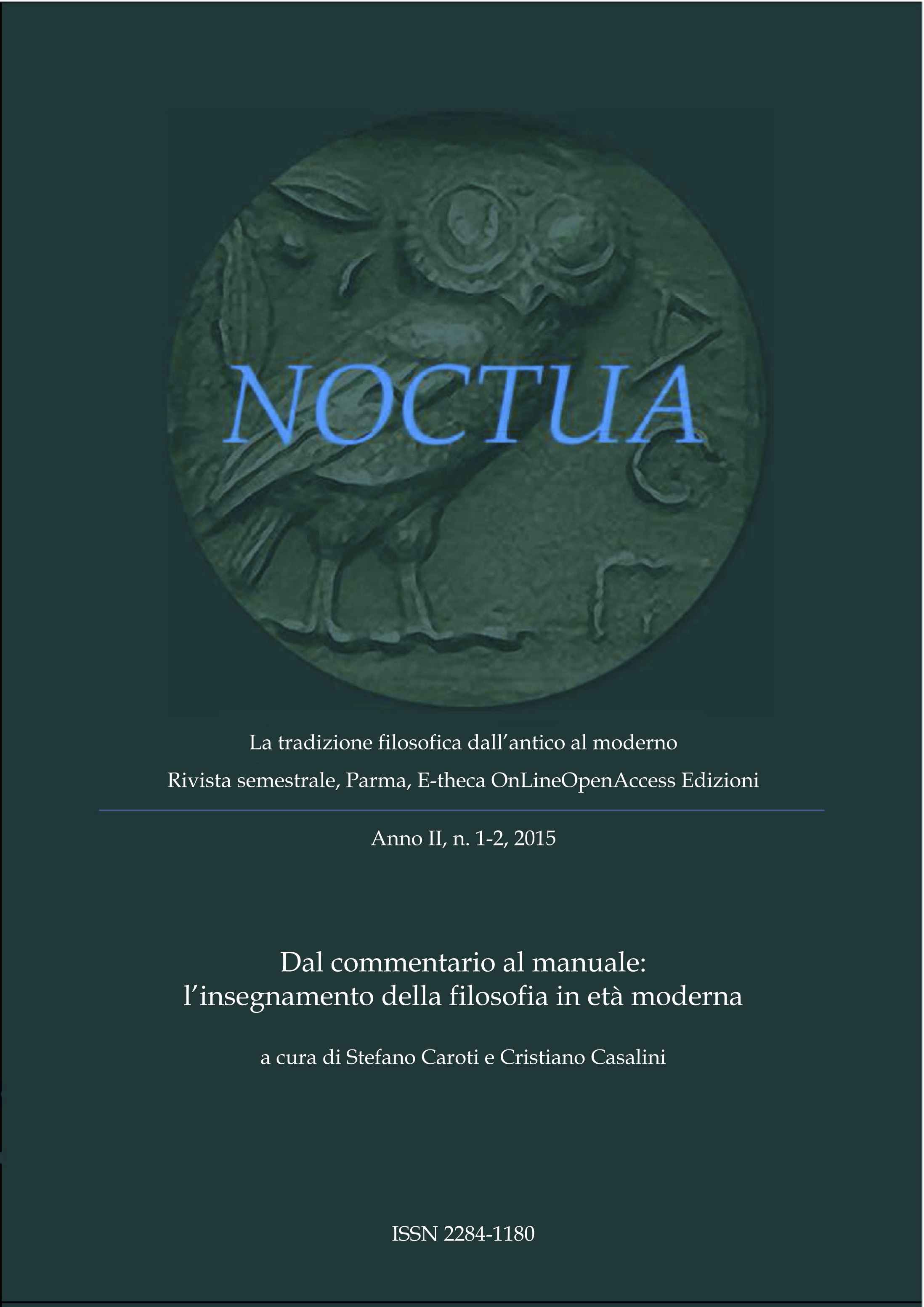The Ratio Studiorum of the Conventual Franciscans in the Baroque Age and the Cultural-Political Background to the Scotist Philosophy Cursus of Bartolomeo Mastri and Bonaventura Belluto
DOI:
https://doi.org/10.14640/NoctuaII8Parole chiave:
Bonaventura Belluto, Friars Minor Conventuals, Bartolomeo Mastri, Giacomo Montanari, John Duns ScotusAbstract
During the century following the Council of Trent, two trends within Catholic religious orders matured: the first consisted in unifying and strengthening the Order’s culture by focussing on one author of reference; the other in elaborating a new way of presenting that author’s doctrines. In the case of the Friars Minor Conventuals, these trends were fostered in the second decade of the seventeenth century by the minister general of the Order, Giacomo Montanari, who promoted the idea that providing the Order with new works featuring innovative didactic characteristics and a renewed defence of the doctrines of John Duns Scotus was a prime way to lead an authentic religious life. Bartolomeo Mastri and Bonaventura Belluto’s “philosophiae cursus ad mentem Scoti” was probably the major result of this impulse. This essay examines the ways in which this process occurred and the outcomes to which it led.
##submission.downloads##
Pubblicato
Fascicolo
Sezione
Licenza
Copyright (c) 2015 Marco Forlivesi

TQuesto lavoro è fornito con la licenza Creative Commons Attribuzione 4.0 Internazionale.
Noctua pubblica contributi Diamond Open Access secondo i termini della licenza CC BY / Noctua publishes Diamond Open Access contributions under the terms of the CC BY license.







